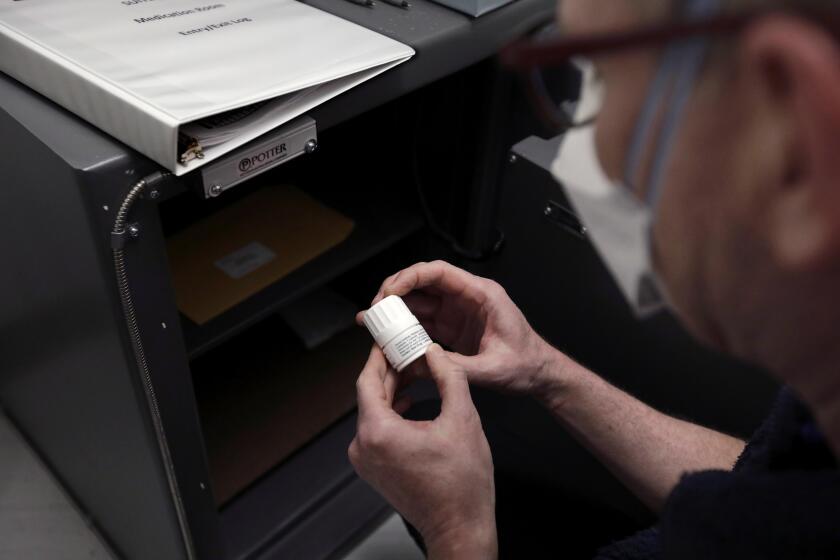Study finds hypertension drugs safe, effective after age 80
Contrary to the prevailing belief among cardiologists, reducing blood pressure in people over the age of 80 can sharply reduce the number of heart attacks, strokes and deaths, researchers said Monday.
Treatment with one or two inexpensive, well-tolerated drugs produced a 21% drop in overall mortality -- such a significant decrease that the study was ended prematurely so that all of the participants could benefit from the treatment, British researchers said.
The findings were presented at a Chicago meeting of the American College of Cardiology and the Society for Cardiovascular Angiography and Interventions.
Researchers had previously thought that controlling blood pressure in the elderly might reduce the threat of stroke but increase the risk of death, requiring them to carefully balance the risks and benefits of therapy.
“Hopefully, we have quashed the idea that this is a balance between risk and benefits -- it is all benefits,” said epidemiologist Nigel S. Beckett of Imperial College London, the lead author of the report, which was also published online by the New England Journal of Medicine.
“This was unexpected,” he said.
Dr. Marc E. Shelton of Prairie Cardiovascular Consultants in Springfield, Ill., who chaired the meeting and was not involved in the study, added: “This is the first major trial in patients over the age of 80 . . . and it gives credence to the fact that you should take [hypertension in this group] seriously.”
The findings are important, experts said, because of the expansion of the elderly population. People older than 80 account for 4% of the population but are expected to make up 11% to 12% in a couple of decades, Beckett said.
The results “prove that it is not too late to start antihypertensive therapy in older people and expands the upper limit of the age spectrum for which there is evidence from clinical trials of a treatment benefit,” wrote Dr. John B. Kostis of the University of Medicine and Dentistry of New Jersey in an editorial accompanying the report.
Beckett, Christopher Bulpitt of Imperial College and their colleagues studied 3,845 patients over 80 who had an average blood pressure of 173/91 millimeters of mercury. Normal blood pressure is considered to be below 120/80.
The patients were treated at 195 hospitals in 13 countries.
Half were given the diuretic indapamide and half a placebo, with the goal of bringing the systolic or upper value down to about 150. Additional lowering might cause the patients to become dizzy when they stood up, leading to falls and bone damage, Shelton said.
If sufficient lowering couldn’t be achieved with indapamide alone, physicians added perindopril, also a widely used hypertension drug.
After two years, the mean reduction in blood pressure in the treated group was 15/6.1.
Compared with the untreated group, there was a 30% reduction in the stroke rate, a 39% reduction in the rate of death from stroke, a 21% reduction in death from any cause, a 23% reduction in the cardiovascular death rate and a 64% reduction in the heart failure rate.
“Even at the age of 80-plus, antihypertensive medication is beneficial,” Beckett concluded.
The study was funded by the British Heart Foundation and the Institut de Recherches Internationales Servier, an arm of the French pharmaceutical company Les Laboratoires Servier. The researchers reported grants and speaking fees from various pharmaceutical companies.
--



